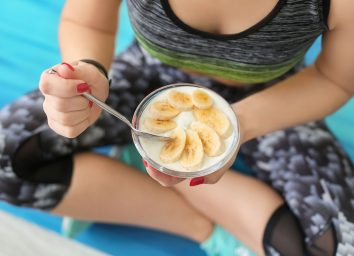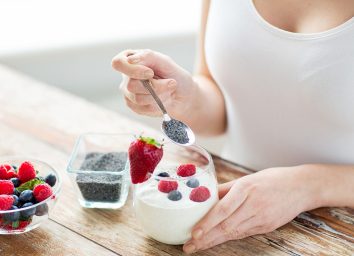25 Best Foods for Menopause
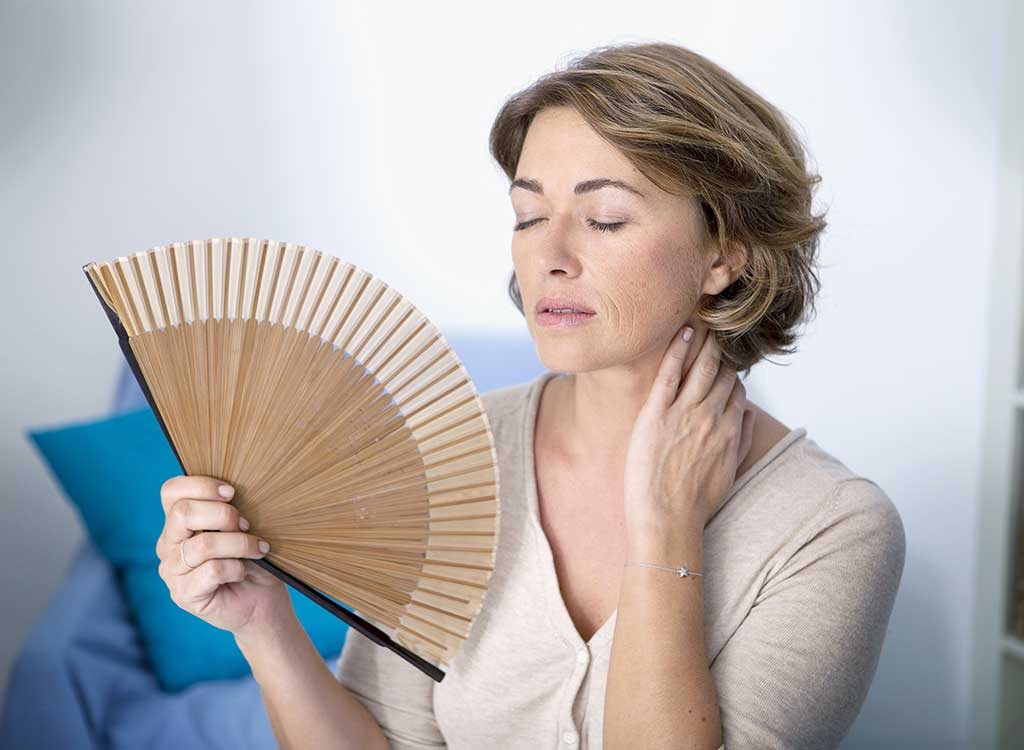
When you’re going through menopause, diet can help alleviate the symptoms that come with it: Mood swings, hot flashes, weak bones, slower reaction times. While most of us focus our thoughts on what we can’t change, there are actually a number of things that can be done to help us age gracefully and healthfully and work through menopause with ease. One of which is changing up your shopping list!
With that in mind, we reached out to some of the wellness industry’s leading experts and asked them what women should load our plates with to mitigate the symptoms often associated with menopause. And while you’re tweaking your diet, scrap these foods that age you 20 years from your routine, too!
Carbohydrate-Rich Snacks Should Be A Go-To

“As hormones fluctuate, so does brain chemistry, including a powerful nerve chemical called serotonin,” says Elizabeth Somer, MA, RD and author of Eat Your Way to Happiness. “Peri- and postmenopausal women who struggle with mild depression might have lower serotonin levels than do other women.” Somer goes on to explain that when serotonin levels are low, a woman is more likely to crave sweets and feel grumpy, while a rise in serotonin turns off the cravings and restores a more agreeable mood.
If serotonin is at the root of the mood swings, a carbohydrate-rich snack (such as a half of a 100% whole grain bagel toasted and topped with jam or two cups of air-popped popcorn) could be all it takes to boost serotonin levels and mood. Discover the foods that make you happy for more ways to boost your happy hormones.
Bone Up On Calcium
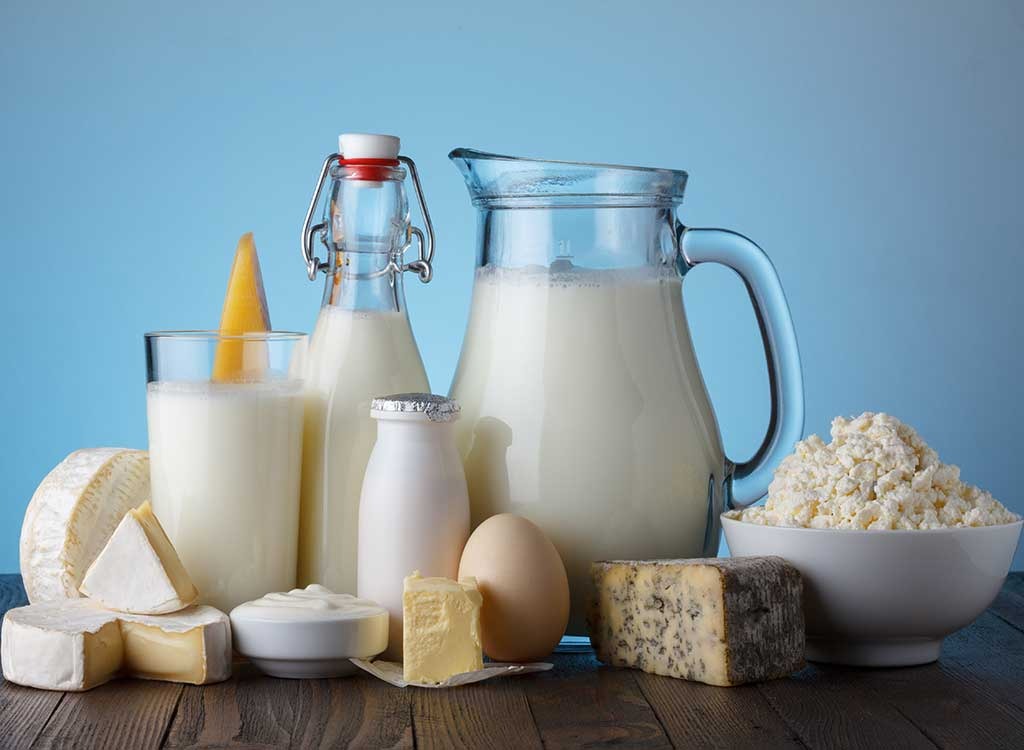
During and after menopause, women face some big-time health issues, including an escalating risk for osteoporosis. Women who consumed ample calcium throughout life enter menopause with strong bones and are at lower risk of developing osteoporosis.
According to Somer, however, most women don’t get enough. “One out of every two postmenopausal women consume less than half the recommended calcium allotment of 1,200 mg to 1,500 mg needed to prevent age-related bone loss and osteoporosis. Before, during, and following menopause, you can slow the loss of bone with calcium.” While dairy is often a go-to choice, there are plenty of other options, including dark leafy greens, bok choy, broccoli, almonds, sardines, salmon, sesame seeds and chia seeds. Find out the best dairy-free calcium foods now!
You Need Vitamin D
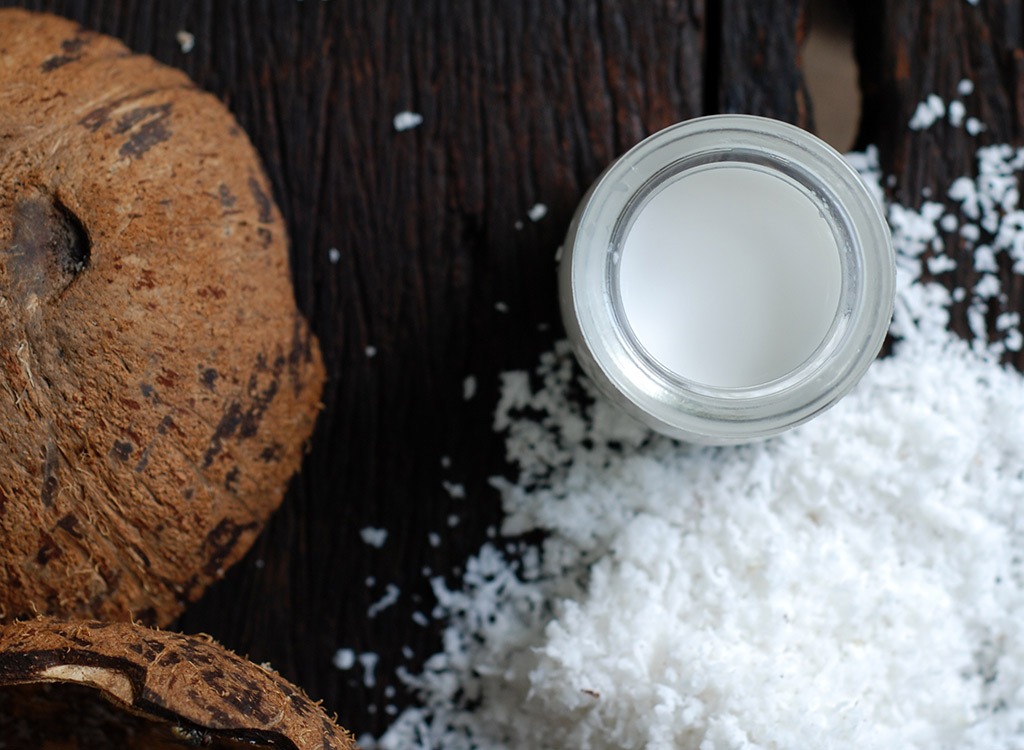
“Menopausal women need to ensure they are consuming enough foods rich in vitamin D or taking supplementation to prevent bone loss. Vitamin D is needed to absorb calcium,” says Stacy Goldberg, MPH, RN, BSN, and founder of Savorfull. Foods rich in vitamin D include fatty fish and fortified foods. Canned salmon is also a good option since it contains the tiny bones rich in calcium. “If you are switching to a non-dairy beverage during menopause, however, be sure that your beverage explicitly says that it’s fortified with calcium and vitamin D,” says Goldberg who also cautions clients to be aware that many of these non-dairy beverages contain added sugars. Choose the unsweetened versions of nondairy beverages such as almond milk, rice milk, coconut milk, and even hemp milk.
Heart Disease-Fighting Foods Are Important
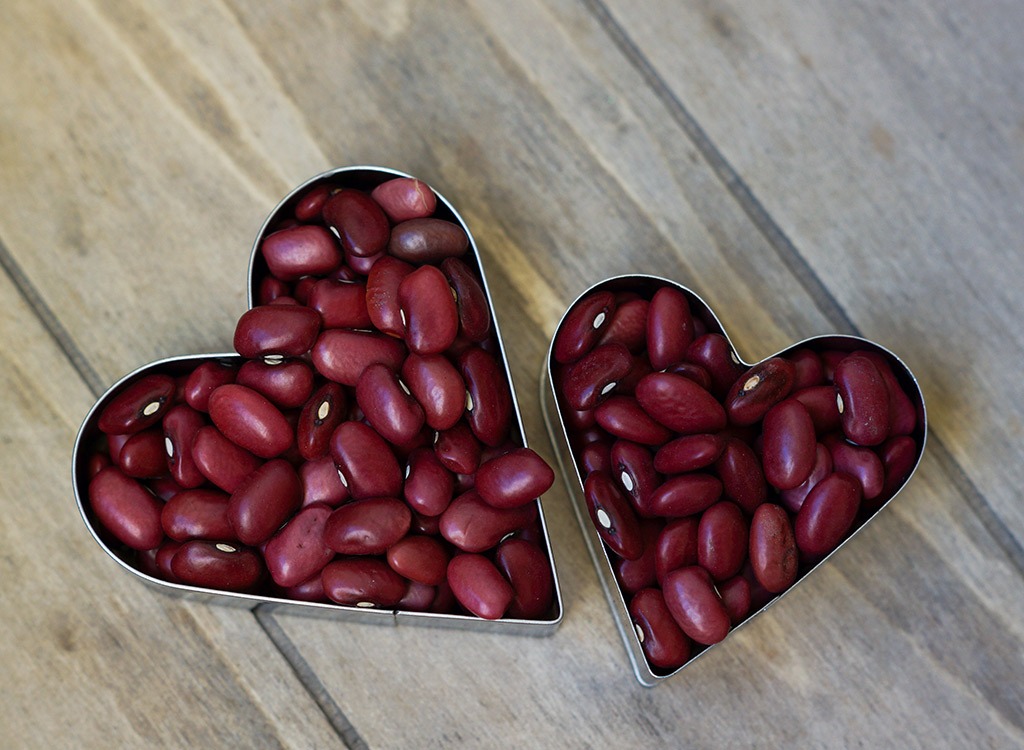
“Heart disease is no laughing matter after menopause,” cautions Somer. “Cushioned from the ravages of this disease while estrogen levels were high, the risk for heart disease escalates quickly as estrogen levels drop, catapulting heart disease to the number one cause of death after menopause.” The good news? Heart disease risk can be significantly reduced with diet and exercise. According to Somer, adopting a low-fat, high-fiber diet based on a wide variety of colorful fresh fruits and vegetables, whole grains, legumes, and nonfat milk products can help maintain a lean figure and keep blood fat levels and heart disease risk at bay. Meanwhile, steer clear of these worst foods for your heart!
Make Sure To Get Enough Water

Amy Shapiro, MS, RD, CDN and founder of Real Nutrition NYC, says she recommends that her patients make sure to get at least eight glasses of water a day to avoid dryness symptoms (common with menopause), as well as bloating (which can come with hormonal changes). If plain water doesn’t hold high appeal, skip the store-bought flavored waters, which are almost always high in sugar and artificial additives; instead, infuse your own with fruits and herbs. It’s quick and easy and a great use of over-ripe produce. Alternatively, make a point to eat foods, like watermelon and cucumber, that have a high water content.
B Vitamins and Protein Are Your Best Buds
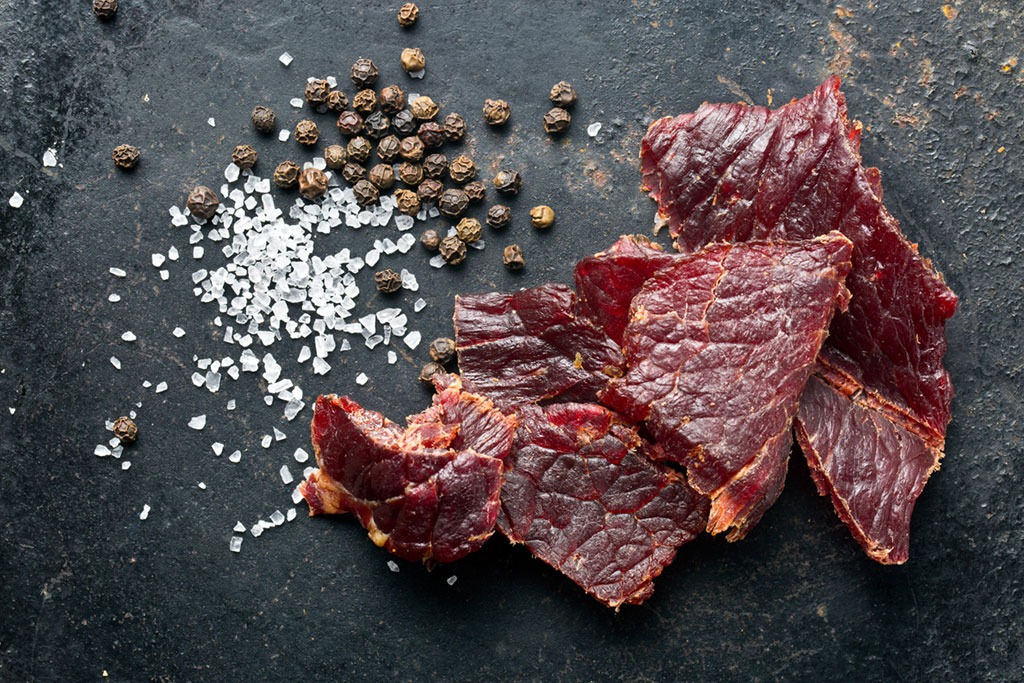
B vitamins provide energy and regulate mood swings, while protein helps to stabilize the blood sugar (helpful for mood swings in menopausal women). That’s why Goldberg recommends opting for foods that are both high in B vitamins and protein for your on-the-go snacks. Among her favorites are REDD Bar, Good Greens Energy Bars, Field Trip Jerky, Simply Snackin Jerky and Sunburst Trout Farms Jerky.
Load Up On Flaxseed
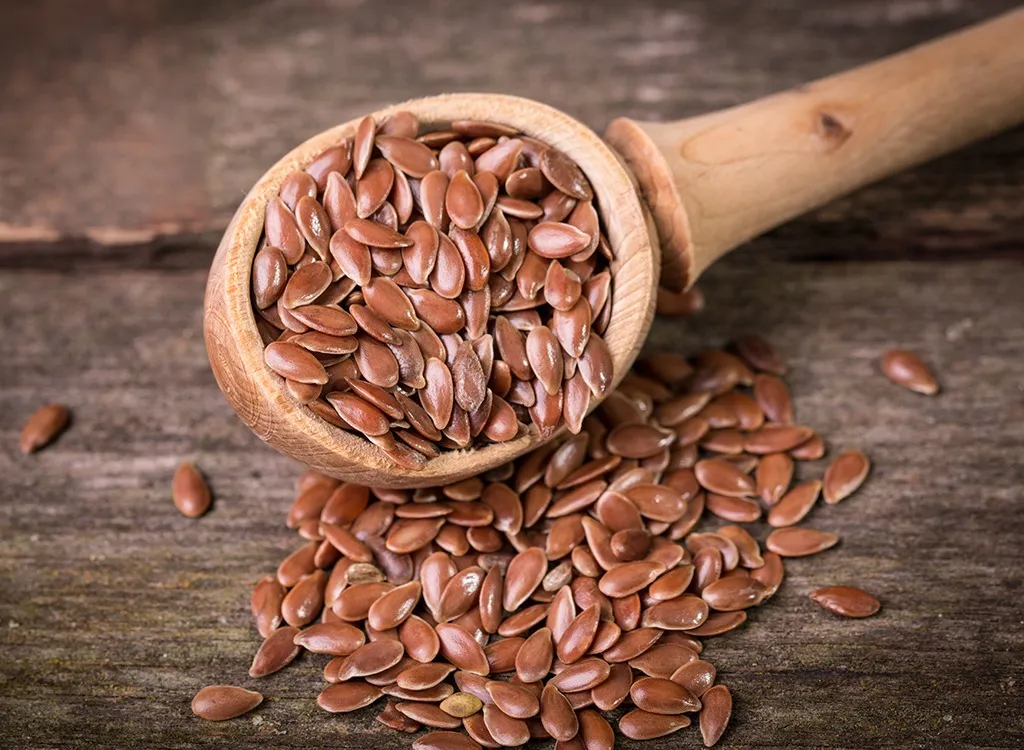
Flaxseeds are full of fiber, which is important for preventing both heart disease and constipation. “Flaxseeds also contain some estrogen-like compounds that can help with hormonal changes,” says Shapiro. You’ll need to grind up those flaxseeds, though, and then also store them in the fridge to keep ’em from turning toxic. Find out more with our exclusive article on foods you’re eating wrong!
Eat Almonds
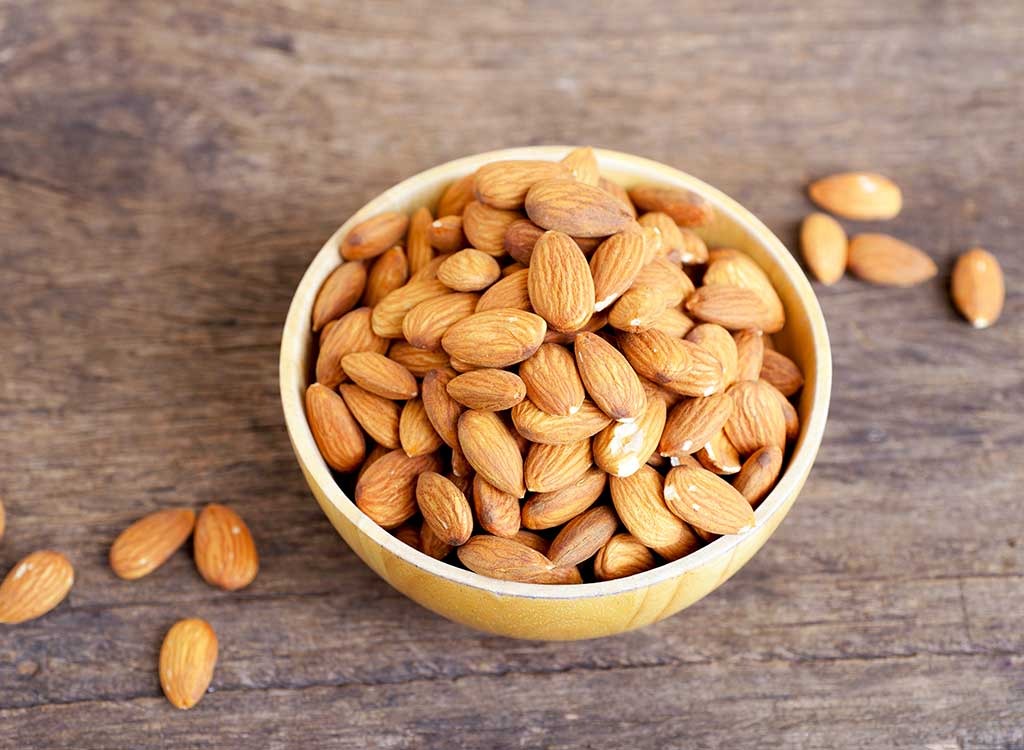
“Eat almonds every day for nutritional support during menopause,” says Dr. Forman. “Almonds are a great source of healthy fat, which helps to counter the drying effects of low estrogen levels. They are also high in magnesium, vitamin E complex, and riboflavin, which is essential to vascular integrity. Plus, they’ve got important trace minerals like manganese and copper.”
Eggs Are A Good Thing
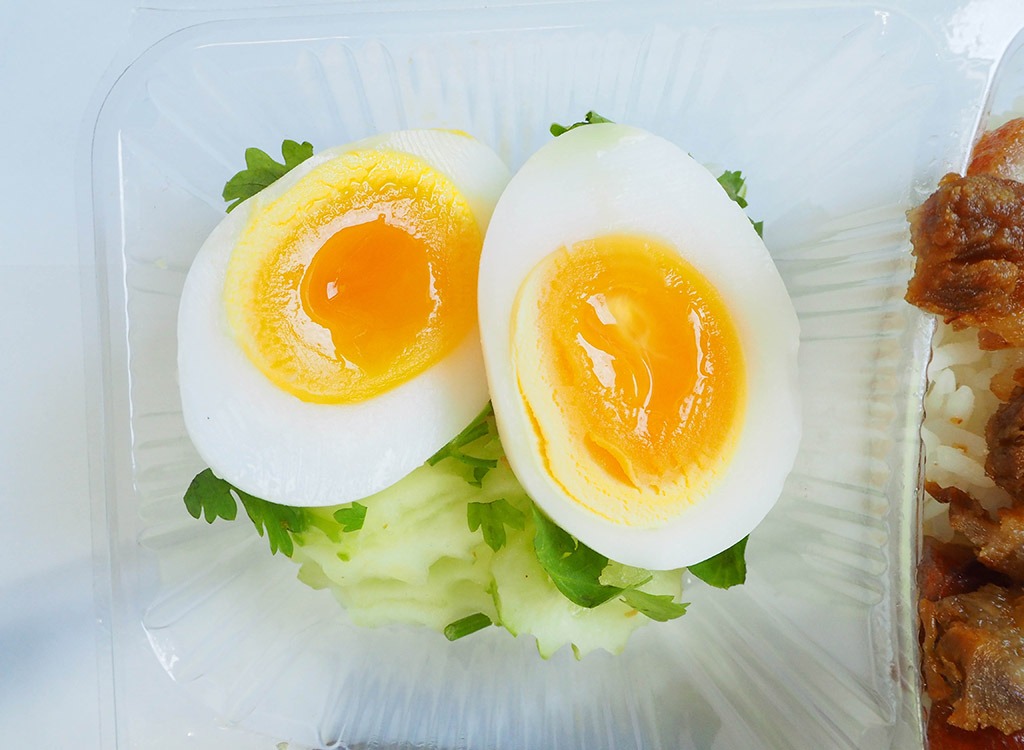
Shapiro is a big fan of eggs, which she considers a great source of vitamin D, as well as iron and B vitamins. “All the nutrients we need to feel energetic and keep our bones strong are packaged in one small shell!” When possible, opt for cage-free, organic eggs. Ideally, you’ll also be buying eggs from pastured hens raised locally.
Try Specific Kinds Of Soy
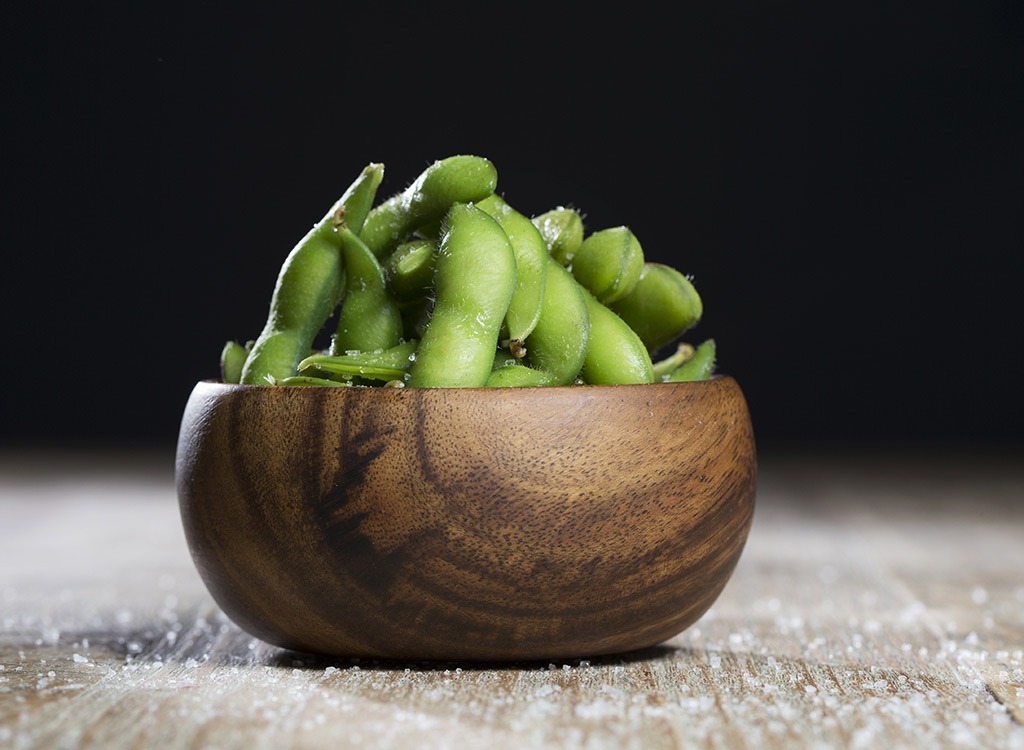
Although controversial, soy contains plant estrogens that may prevent or lessen menopausal symptoms for some women, according to Shapiro. She recommends eating minimally processed soy foods like edamame and tempeh to reap these benefits specifically.
Load Your Plate With Brain Food
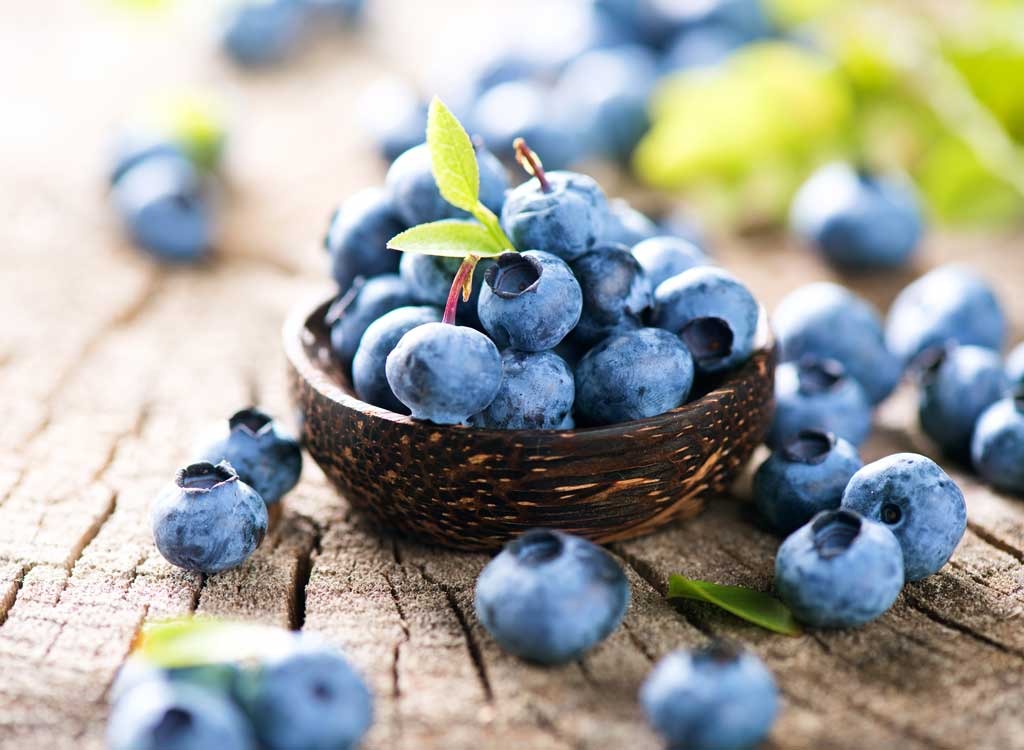
Protect your mind in the later years with foods that fuel brain power! According to Somer, these include fatty fish rich in DHA and EPA (the omega-3s), which show promise in improving memory and possibly lowering the risk of dementia. Two compounds in dark green leafy vegetables (lutein and zeaxanthin) also show promise in protecting both vision and memory as we age. Finally, blueberries (and other berries) have been nicknamed “brain berries” because of the evidence linking them to improved brain function.
Fiber, Water, and Protein Make A Winning Combo
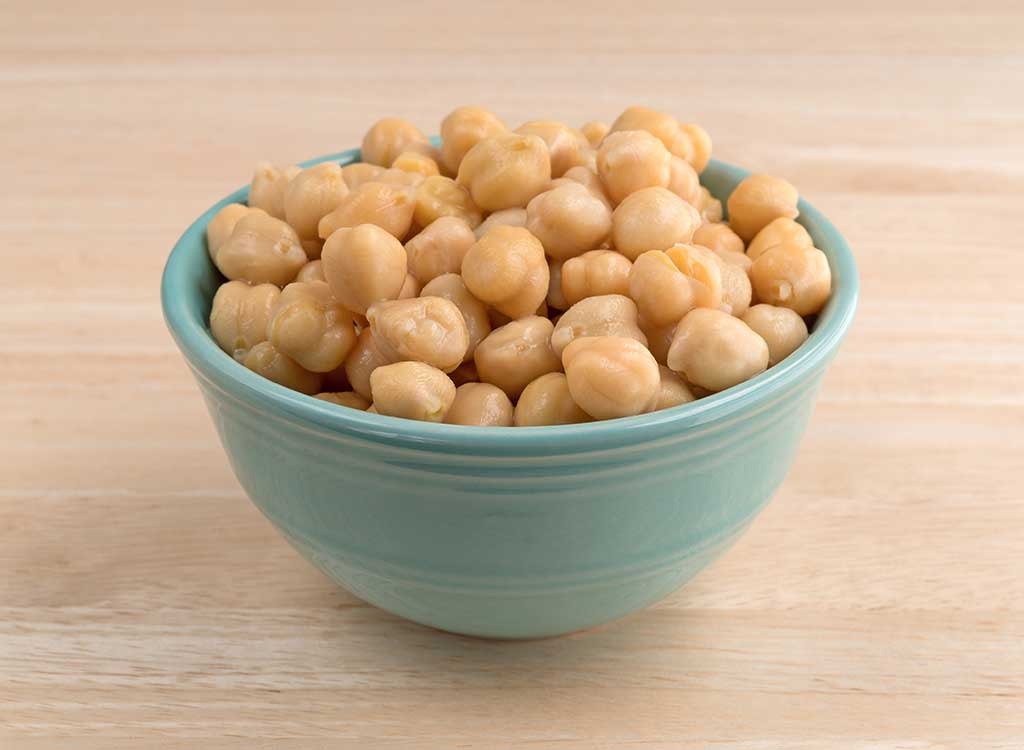
After menopause, women find it easier to put on weight and harder to take it off. In addition, postmenopausal women’s figures begin to change as they gain more weight above the belt. “The good news is that a few extra pounds in the hips and thighs (“pear shaped”) might dent a woman’s vanity, but they won’t hurt her health,” says Somer. “On the other hand, gaining weight in the tummy and chest (“apple-shaped”) could signal post-menopausal health problems, from heart disease and breast cancer to diabetes and hypertension.” Health-wise, she says, apple-shaped women derive the greatest benefits from weight loss; even a 10 percent reduction in weight significantly improves a woman’s health status.
How should menopausal women do this? Focus on real, unprocessed foods that are rich in the three magic ingredients for weight loss: fiber, water, and protein. “These fill you up on fewer calories, so you push away from the table before over-consuming. Cooked dried beans and peas, such as black beans, kidney beans, lentils, split peas, and garbanzos, contain all three. Old fashioned oatmeal cooked in milk also is the perfect breakfast food for weight management.” Speaking of, make the most of these ways to lose weight with oatmeal.
Two Servings Of Fruit Are Ideal
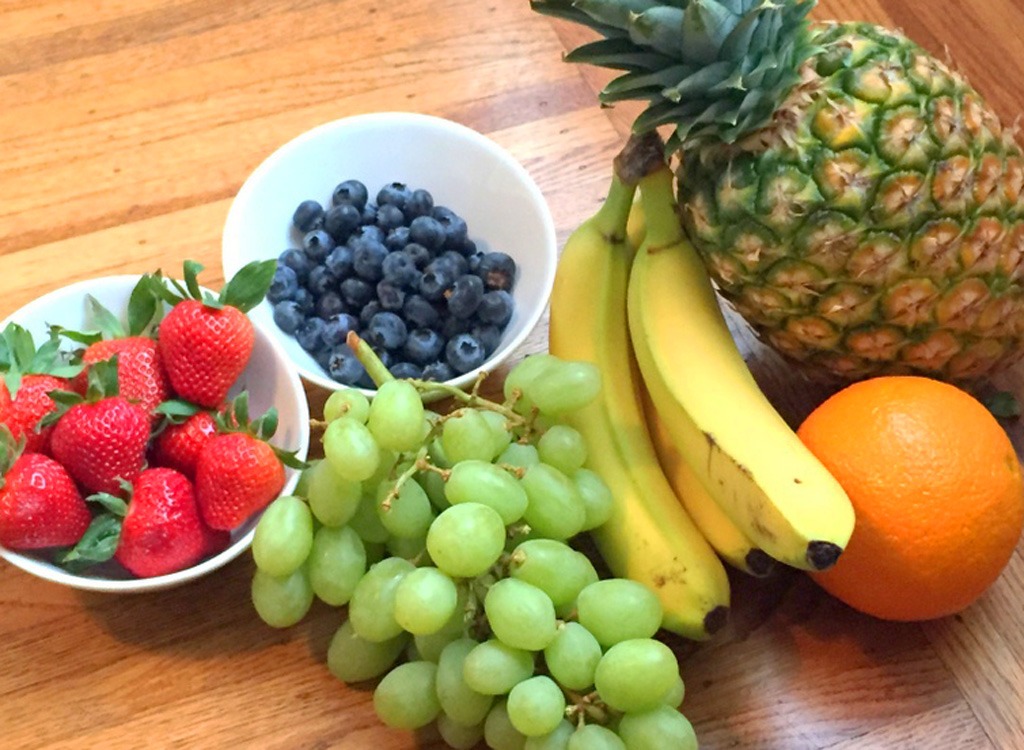
These gems are natural ways to calm a sweet tooth and are full of disease-fighting antioxidants, are low in calories, and are high in water and fiber to fill you up without filling you out. Shapiro cautions not to eat more than two servings per day, however, to avoid adding too much sugar to your diet.
Eat More Vegetables
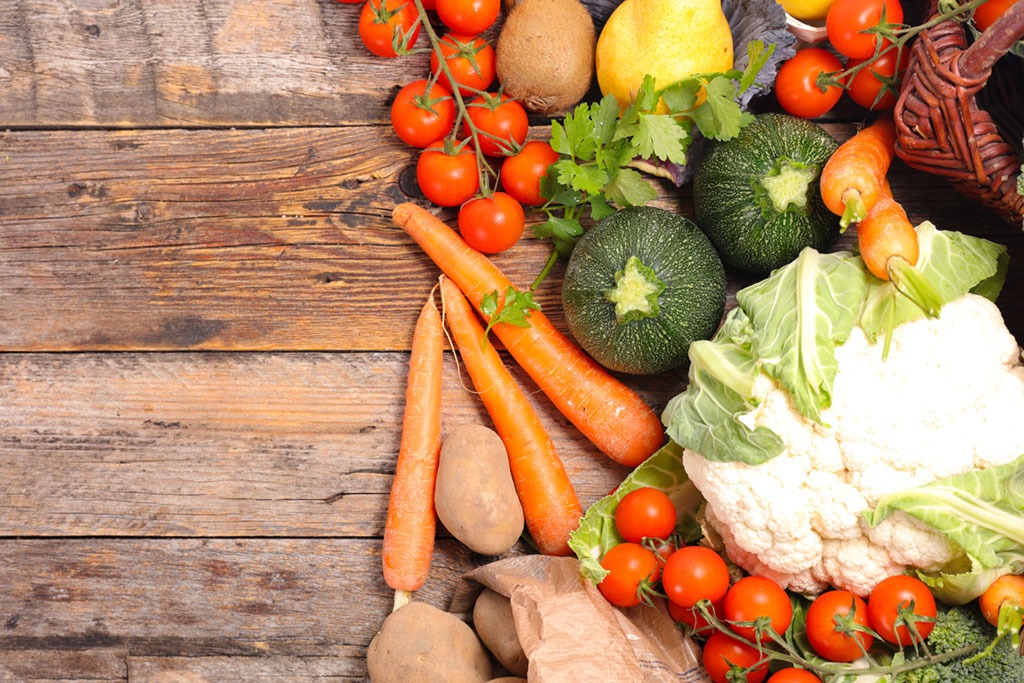
“Very low in calories and high in fiber, vegetables come in handy as our calorie needs decrease and weight gain risk increases as we age,” explains Somer. Next time you’re in the produce aisle, load up on these most filling fruits and veggies.
Look For Foods High in Omega-3
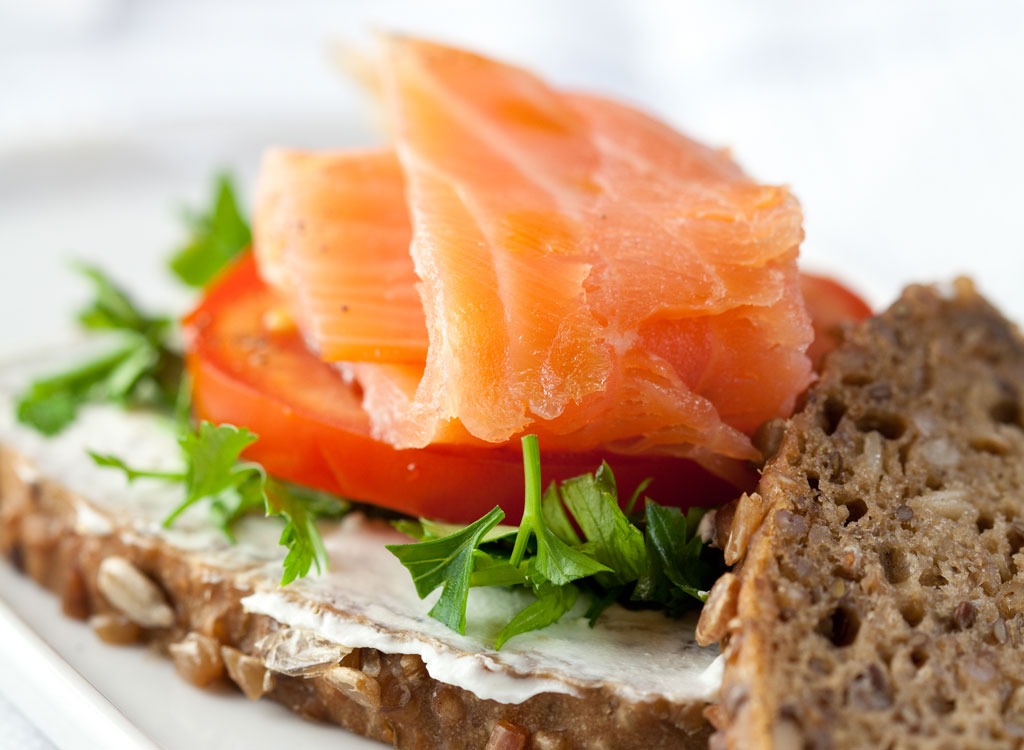
Shapiro recommends oily fish like salmon, which she says may help battle the mood swings many women experience during menopause. This is thanks to the omega-3 fatty acids they contain. Mackerel, sardines, and cod are also good options. Omega-3 fats are also very helpful to provide energy and healthy fats for the menopausal woman and they help reduce LDL (bad cholesterol) and lower the risk of heart disease. Goldberg recommends that women at greater risk of heart disease after menopause discuss taking a fish oil or omega-3 supplement with their physicians. One study, she says, found that taking EPA (one of the omega-3 fats found in fish oil) reduced the frequency of hot flashes in menopausal women. Along with salmon, these are the best omega-3 superfoods.
Protein-Bound Iodine Is Important
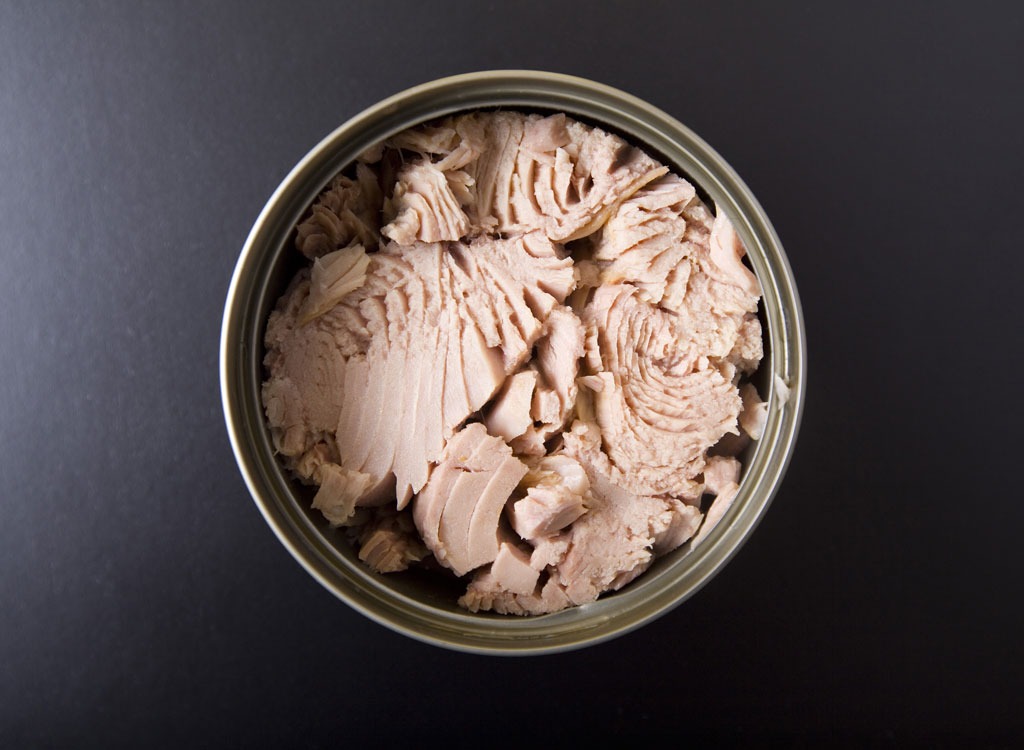
According to Dr. Forman, protein-bound iodine is essential for ovarian and thyroid support. “Because of the amount of chlorine, bromine, and fluorine in our daily lives, our bodies struggle to get enough usable iodine to have healthy organ function. This can often be a driving factor in extra low hormone production.” Iodine is an essential mineral; healthy sources include cod, dried prunes, canned tuna, cranberries, green beans, and navy beans.
Reach for Iron-Rich Foods
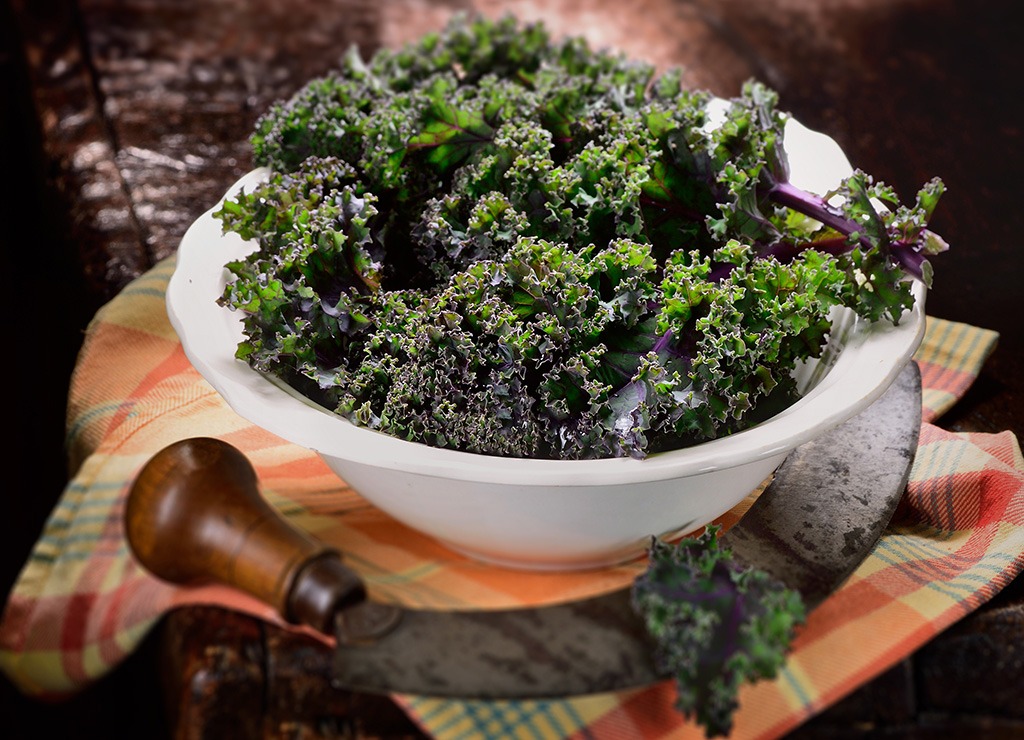
“Iron-rich foods like red meat, leafy green vegetables and eggs are important because taking iron supplementation can sometimes cause iron overload in menopausal women, thus creating toxicity,” says Dr. Forman. “This being said, menopausal women are at risk for anemia and should be concerned about getting enough iron-rich foods.”
Wild Yams Are A Great Addition To Your Diet

Wild yams act like estrogen supplementation and tend to lessen the effect of low estrogen levels in menopausal women, says Dr. Forman. They can be eaten whole or taken as whole food supplementation. Among the symptoms they help treat are vaginal dryness, low sex drive, and weak bones.
Raw Dairy Products Are Good to Go
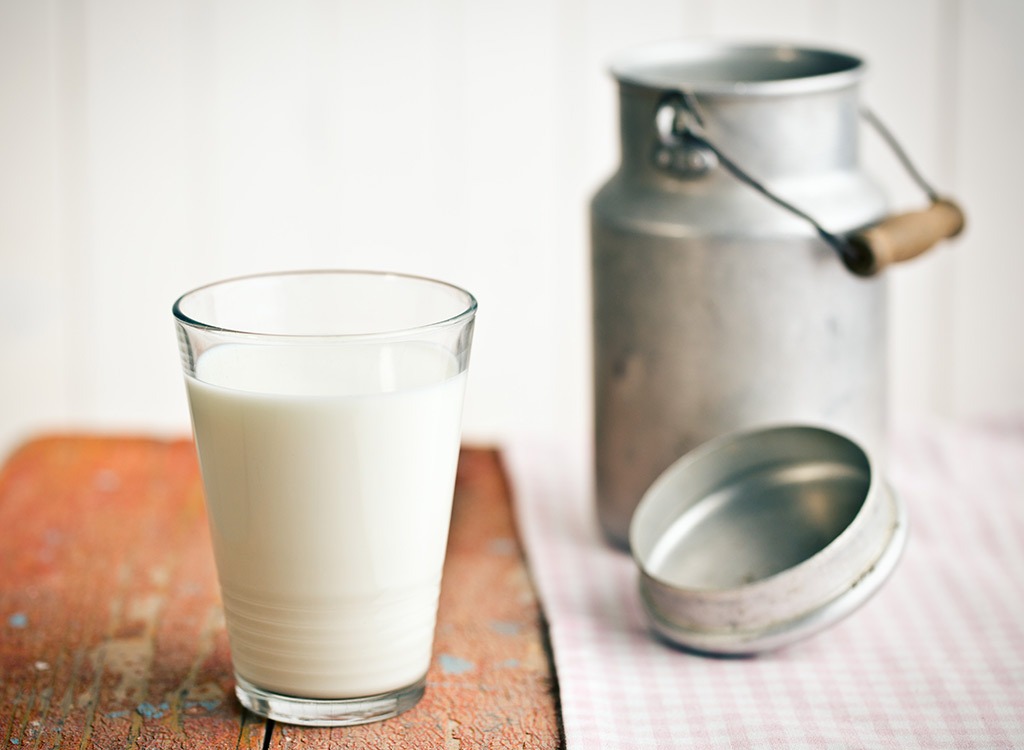
“If you can get them raw, cheeses, milk, and yogurts are highly beneficial,” says Dr. Forman. “These quality dairy products, unlike their pasteurized cousins, are very digestible and promote healthy bacteria in the gut, which is essential for digestion. They also supply good amounts of calcium for bone health.”
Broccoli Is A Great Source Of Calcium

As mentioned, calcium is very important to boost bone health and broccoli is an oft-overlooked source of usable calcium. “Calcium deficiencies are the leading causes of bone health degeneration. This is partly because the foods we traditionally think are calcium-rich are not usable by our bodies because they’ve been too processed,” explains Dr. Forman. Worried that broccoli will make you bloat? If you’re getting enough vitamin D—the vitamin that stops bloating—then you should be good to go!
Consider Beef And Chicken Liver
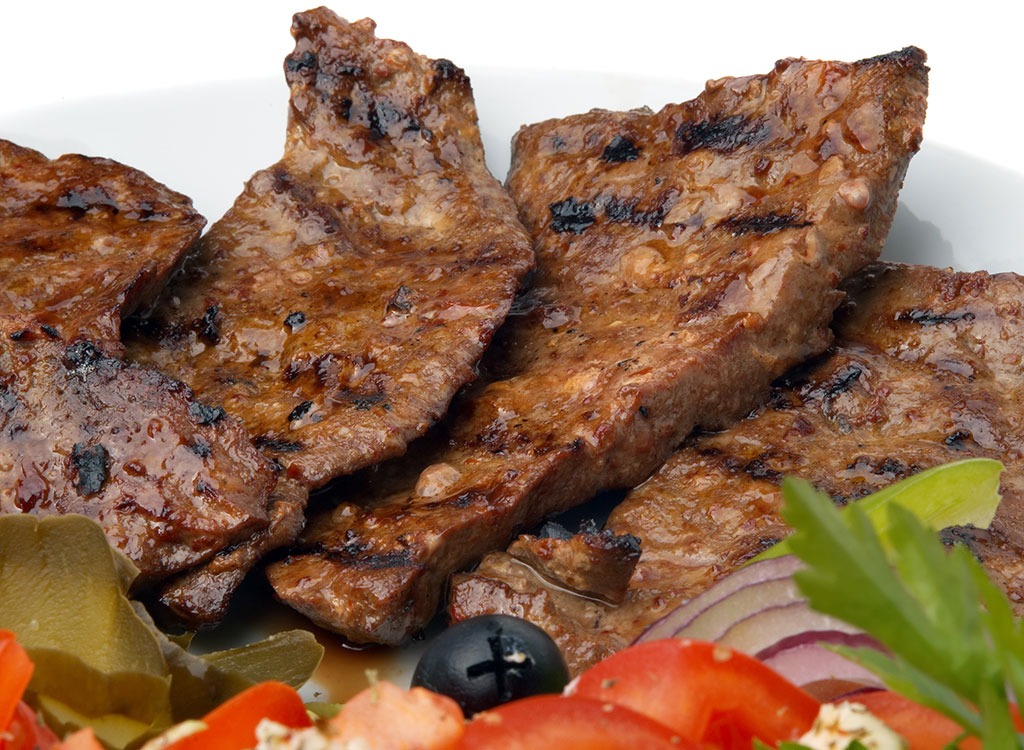
This one may be an acquired taste, but hear us out; it’s one worth acquiring! Cow and chicken liver offer some of the best sources of trace mineral and B vitamins. When shopping, make sure the cow or chicken liver is of the grass-fed, zero-hormone, natural variety. “Liver is a fantastic source of vitamin C complex, iron, and many of the trace minerals our body relies on. When these are in low supply, symptoms such as those experienced in menopause become more pronounced,” explains Dr. Forman.
Legume It Up!
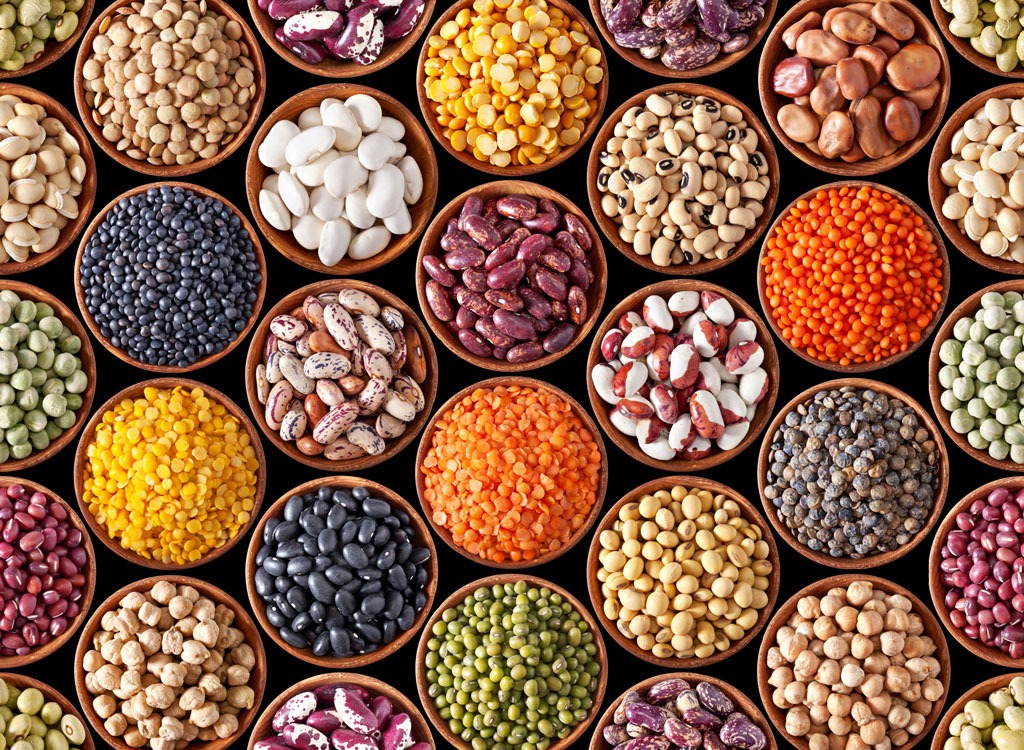
Like broccoli, legumes are a good source of usable calcium and provide quality vegetable protein. But it doesn’t stop there. “Legumes are also great for providing much-needed potassium and magnesium, both of which can aid in the symptoms of menopause,” says Julieanna Hever, MS, RD, CPT. Beans, lentils, and peas are a few other excellent nutrient-dense legume options for women.
Eat Raw Carrots
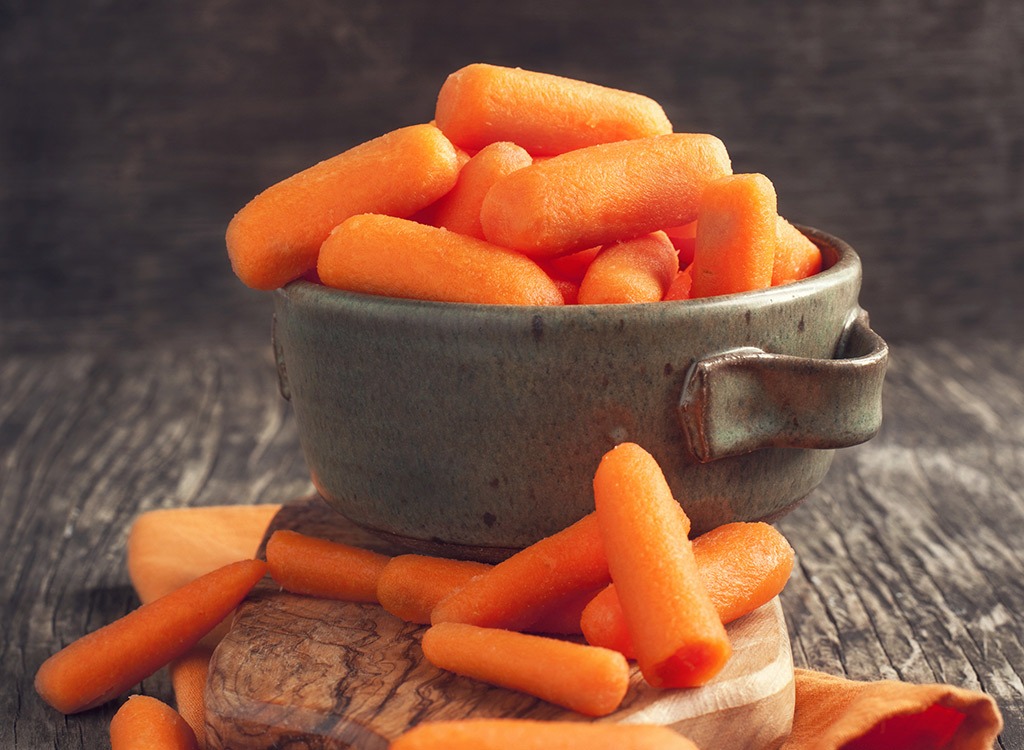
Raw carrots are good for vitamin A complex, vitamin C complex, and essential nutrients that get depleted during menopause. Dr. Forman cautions that they should be organic, as many of the pesticides used in commercial agriculture are harmful and can even make symptoms worse.
Figs Are Beneficial

Figs are a great source of calcium and vitamins. “Whole raw figs, not the dried kind, are very rich in nutrients and can help make up for some of the losses that occur when the body is under stress from things like hot flashes and mood swings,” says Dr. Forman.
Gluten-Free Grains Are Great
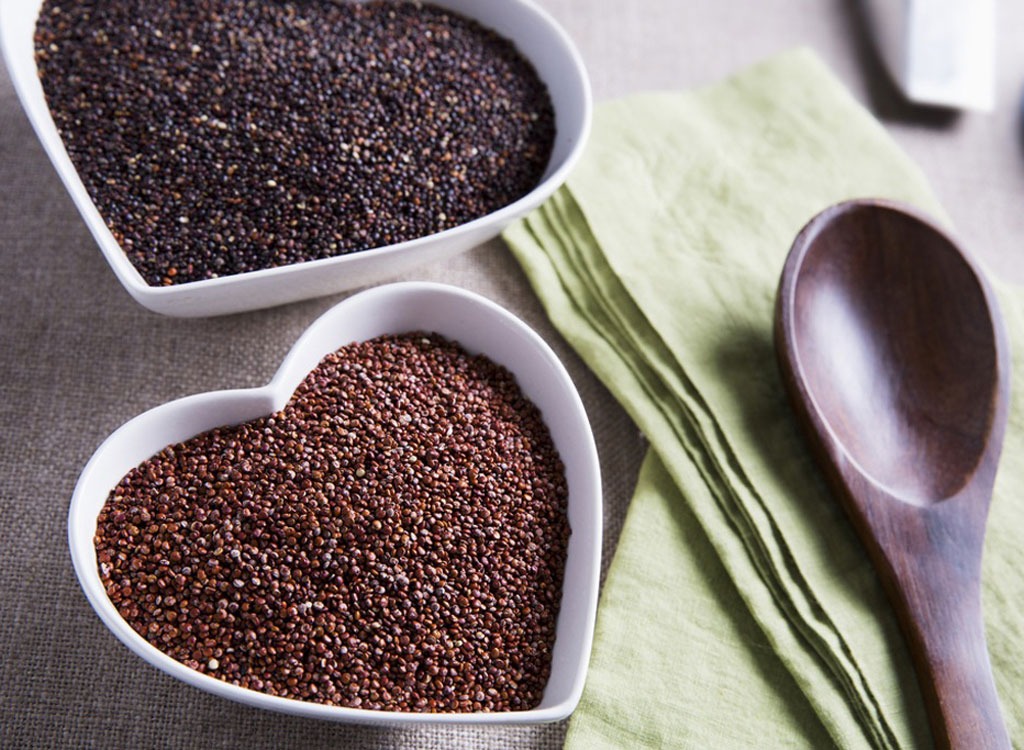
Grains like quinoa, millet, brown rice, buckwheat, and amaranth are the best options for grains as they’re all gluten-free, high in fiber, and easy to digest. They’re also full of B vitamins for increased energy and have been shown to help mitigate migraines. Sound good? Then find out more with these best and worst foods for headaches!

